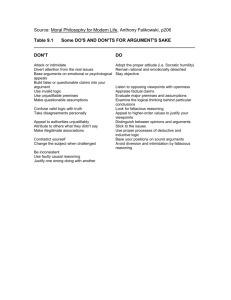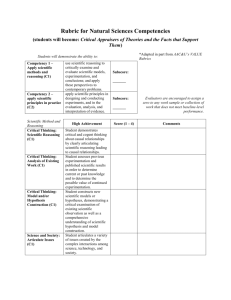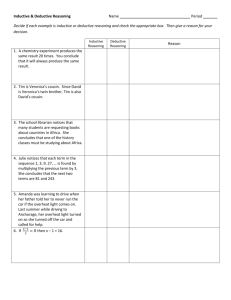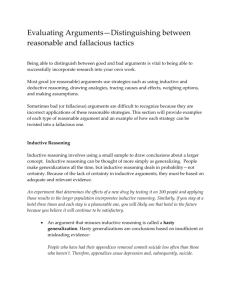Critical Thinking / Information Literacy Senior Assessment Rubric
advertisement
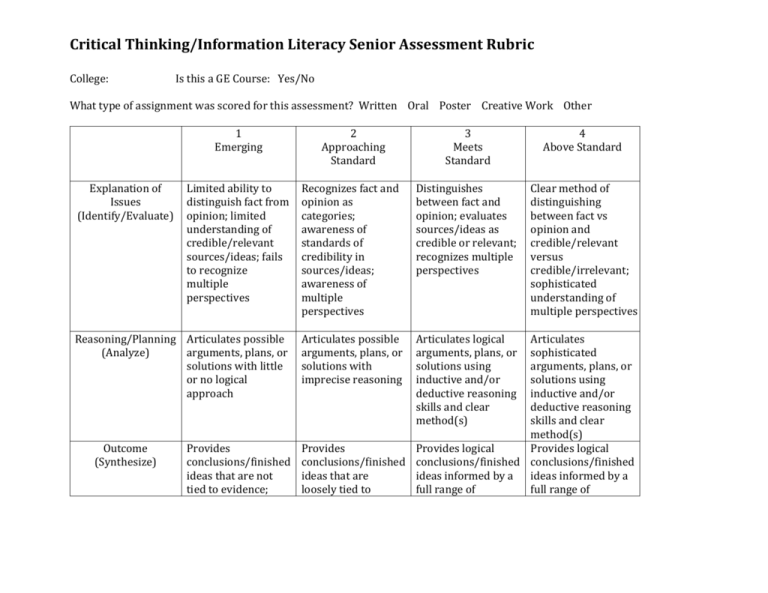
Critical Thinking/Information Literacy Senior Assessment Rubric College: Is this a GE Course: Yes/No What type of assignment was scored for this assessment? Written Oral Poster Creative Work Other Explanation of Issues (Identify/Evaluate) 1 Emerging 2 Approaching Standard 3 Meets Standard 4 Above Standard Limited ability to distinguish fact from opinion; limited understanding of credible/relevant sources/ideas; fails to recognize multiple perspectives Recognizes fact and opinion as categories; awareness of standards of credibility in sources/ideas; awareness of multiple perspectives Distinguishes between fact and opinion; evaluates sources/ideas as credible or relevant; recognizes multiple perspectives Clear method of distinguishing between fact vs opinion and credible/relevant versus credible/irrelevant; sophisticated understanding of multiple perspectives Articulates possible arguments, plans, or solutions with imprecise reasoning Articulates logical arguments, plans, or solutions using inductive and/or deductive reasoning skills and clear method(s) Reasoning/Planning Articulates possible (Analyze) arguments, plans, or solutions with little or no logical approach Outcome (Synthesize) Articulates sophisticated arguments, plans, or solutions using inductive and/or deductive reasoning skills and clear method(s) Provides Provides Provides logical Provides logical conclusions/finished conclusions/finished conclusions/finished conclusions/finished ideas that are not ideas that are ideas informed by a ideas informed by a tied to evidence; loosely tied to full range of full range of Ethical Use of Information limited range of evidence/sources; demonstrates fallacious reasoning evidence from sources of varying credibility; demonstrates some fallacious reasoning evidence from multiple and suitable sources; avoids fallacious reasoning Provides minimal attribution of information sources Provides attribution of some information courses in some instances Appropriately attributes information sources, but with some inconsistencies evidence from multiple and suitable sources; reasoning reflects complexity and avoids fallacies Provides appropriate attribution of information
